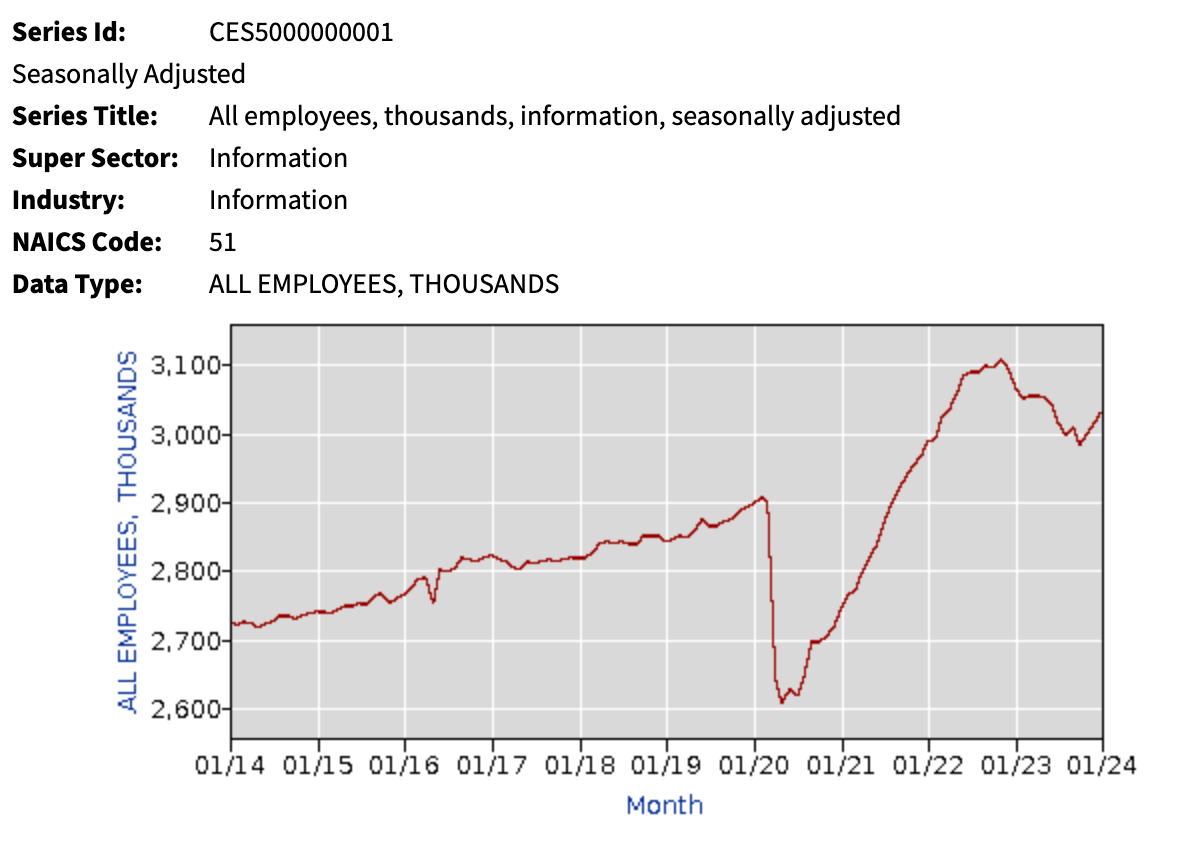MidWeek Briefing #6

Good Wednesday morning. The bloodbath in Silicon Valley deepens but do the job losses portend to something catastrophic? Elon Musk whines (again) on X, this time about his compensation, as he adds the first human Neuralink chip implantation trial to his resume. Let's dive in for this week.
AI layoffs deepen
I wonder if selling AI products has "jumped the shark" and if the next phase in AI transformation is helping companies wire it all together. There's so much open-source stuff out there that you could build an entire custom AI system with the right people from the ground up.
Yet, the siren song of Generative AI (GPT) is displacing many people from well-staffed corporate functions.

Technology revolutions are always disruptive and displace tons of people, but this one seems unique in that the technology it promises doesn’t just augment human efficiency in specific roles in all cases — it actively replaces an entire function in many. There’s a need for greater transparency about when AI will occupy roles people once did as these large companies continue their roll-out, but we’re unlikely to get that in the midst of the action: More likely it’ll be studied and uncovered later by researchers trying to assess the impact.
Neuralink has been implanted into a human
I believe humans will become more "cyborg" like in the future and it might not be a bad thing, especially if it would enhance us and help paraplegics and quadriplegics walk again. To that end Neuralink, a company by Elon Musk, has confirmed its first implantation into a human.

The news comes months after Neuralink began recruiting potential human test subjects for its clinical trial. The company got Food and Drug Administration approval for the trial last May, saying it wanted to enlist people ages 22 and above who are living with quadriplegia due to a spinal cord injury or amyotrophic lateral sclerosis (ALS), the disease that robs people of the ability to control their bodies.
My question is this, will we end up like the Daleks or Cybermen?

Elon Musk's proposed compensation gets cut
I know people grumble about obscene CEO pay vs the regular worker gap across the United States, but a $50 billion compensation package does sound excessive. At least that's what Elon Musk wanted and he's not getting it. Now he's whining on X to “Never incorporate your company in the state of Delaware...”
“The process leading to the approval of Musk’s compensation plan was deeply flawed,” the judge said. She ordered that the contract that gave Mr. Musk “the largest potential compensation plan in the history of public markets” be voided, and told parties in the case to work out how Mr. Musk would return excess pay.
Power to the shareholder I say.
Generative AI disruption in banking and tech
Gen AI will disrupt a lot of traditional jobs and careers that many thought were safe. Adapting your chosen career path to use and incorporate Gen AI into your daily workflows will probably set you apart from those who can't and won't adapt.
That's the trick, you have to roll with the punches to get to what's real.
“There’s no question the workers who will be impacted most are those with college degrees, and those are the people who always thought they were safe,” said Matt Sigelman, president of the Burning Glass Institute.
It's the big finance and tech companies appear to be the ones that are causing the disruption.
Companies in finance, including Goldman Sachs, JPMorgan Chase and Morgan Stanley, have some of the highest percentages of their payrolls likely to be disrupted by generative A.I. Not far behind are tech giants like Google, Microsoft and Meta.
My guess is that they're formulating their long term strategies now and cutting out deadwood.
Okta layoffs
Coming from the "not another layoff" file, Okta lays off 20% of its staff. This comes at the heels of another big cut the previous year.
CEO Todd McKinnon announced the layoff of 400 full-time workers in a Thursday email to staff and a filing with the Securities and Exchange Commission. In the email, published by CNBC and confirmed by Okta spokesperson Jenny Grich, McKinnon called the layoff a “proactive measure” to cut the software giant’s costs, which he called “too high.”
I understand cutting costs and reigning in spending because it's always a good idea to run a lean ship, but just how much is too much? That's the big question, how far can you optimize your workforce relative to costs before you make yourself irrelevant and lose your competitive edge?
End Notes: META & Tech Layoffs
The past few Mid Week Briefings highlighted layoffs in the Tech world. From reading the news one could assume there's a bit of a bloodbath happening in Silicon Valley and I would say that you're right.
From my personal observation, I see a lot of startups and big tech firms "cleaning house" and trying to get a handle on costs, compensation, and optimizing business processes. This optimization isn't just happening in small startups but across all firms.
For example Meta has started their optimization process and it's led to some amazing results: their first dividend.

But the bigger picture is that Meta has spent the last couple of years pushing people out the door and getting out of leases, among other things. And that has improved the company's bottom line — even while Meta is bleeding red ink on the future.
Last year, Meta spent $3.5 billion shrinking itself: $2.5 billion came from "facilities consolidation" — closing and combining offices — and another $1 billion from "severance and other personnel costs" — that is, firing people. The company operates with 67,300 employees, a staggering 22% decrease over the last year.
And all of that means Meta's profit margins are way better: While its revenues increased by 16% — a number most Big Tech companies would be very happy with these days — its operating income increased by 62%, and its profits increased by 69%.
If I put on my MBA hat, I think what Meta is doing is brilliant. They're putting their financial house in order after Zuckerberg's disastrous bet on the Metaverse.
Yet, the human in me sees that the layoffs cause a lot of damage for workers. The sad thing is that these are people's livelihoods are at stake. Sadly, this is what happens in a hyper-capitalistic world, we focus too much on the business at the expense of the knowledge worker.
Yet all is NOT lost for the displaced worker. While my last few Mid Week Briefings have highlighted a lot of high-profile (and some not so high) layoffs, the information sector is showing resilience.

The seasonally adjusted numbers in January 2024 for workers in the information sector showed an uptick, in other words hiring outpaced the firing. Granted, we're down from the peak in mid to late 2022, but we are vastly ahead of pre-COVID worker implosion.
A word of caution when looking at this chart, if you ask any Trader to interpret this chart they'd say that downtrends typically have "higher lows and lower lows." While this uptick is welcome, it might not last in the short term and the trend might continue lower.
My personal take on this sector? Despite the scare of Gen AI and Silicon Valley companies shedding jobs, the need for information workers will continue to grow. It's always wise for our young men and women to study STEM related fields and immerse yourself in the arts. My entire success in life stems (heh) from my engineering degree and my ability to marry function with form.
What? Me Worry? Not one bit.








Member discussion